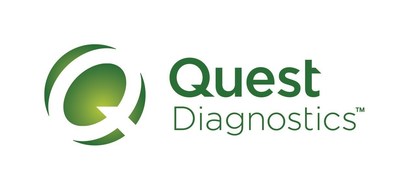Providers in the United States may now order the FDA-cleared HPV self-collection solution for their patients to use in their offices or other healthcare settings, with goal to reduce barriers to screening by enabling discreet self-collection
Quest also plans to make self-collection option available at its 2,000 patient service centers in the United States early next month, expanding access to screening
New solution follows company's launch of GTI self-collection option for several STIs and related conditions last fall
SECAUCUS, N.J., April 2, 2025 /PRNewswire/ -- Quest Diagnostics (NYSE: DGX), a leader in diagnostic information services, today announced a new solution aimed at broadening access to human papillomavirus (HPV) screening to help identify women who are at risk of developing cervical cancer.
Physicians can now offer patients the option to collect their own specimen for HPV screening in a physician's office or other healthcare setting. The company also plans to introduce the self-collection option for patients, with a physician's order, at its 2,000 Quest patient service centers nationwide early next month. The new option builds on Quest's experience in providing patients with discrete self-collection options. The company introduced a self-collection service option for vaginitis and other genital tract infections, such as chlamydia, gonorrhea, trichomoniasis and Mycoplasma genitalium, at its patient service centers in October 2024, and has experienced strong demand for the solution since the launch.
The new offering utilizes the FDA-cleared HPV self-collection solution from Roche (SIX: RO, ROG; OTCQX: RHHBY), approved for use with Roche's cobas® HPV test in May 2024. Interested patients can opt for self-collection in clinical settings, such as a doctor's office, or other healthcare settings.
"We are seeing more demand for solutions that empower patients to take an active role in their health care," said Kathleen Valentine, Vice President and General Manager of Women's and Reproductive Health Services at Quest Diagnostics. "Cervical cancer is highly preventable when detected early, and yet, over 4,000 American women will die this year of cervical cancer primarily due to inadequate screening. Our goal is to make HPV screening more accessible and discreet for women who may otherwise skip or delay this vital preventive care test and therefore increase their risk of developing cervical cancer."
The solution is not FDA approved for at-home collection, and self-collection is not intended to replace a pelvic examination provided by a clinician. Patients should inform their healthcare provider if they suspect they are pregnant or if they have recently had symptoms of pelvic inflammatory disease (such as pelvic pain, pain with sexual intercourse, unusual vaginal discharge or bad odor). If the patient cannot self-collect a specimen, then collection should be performed in another healthcare setting, like a physician's office, where greater support can be provided. The self-collection option is available at no extra charge for the patient or health plan.
Improving access to reduce cervical cancer incidence
When testing for HPV in conventional practice, a healthcare provider collects a specimen from a patient in their office or clinic and forwards it to a laboratory for testing. With the new self-collection service, patients may self-collect from their vagina in a private room at a physician's office using a simple step-by-step guide.1 The provider will send the specimen to a nearby Quest Diagnostics testing laboratory. After testing, results will be provided to the physician and patient electronically. The physician may review the results during a separate patient visit and provide further evaluation as needed.
"The most reliable cervical cancer method is co-testing, which combines HPV and Pap testing, on a specimen collected by a skilled physician," said board-certified obstetrician and gynecologist Damian P. Alagia, MD, Senior Medical Director, Women's Health, Quest Diagnostics. "Yet, the reality is that some patients, whether due to stigma, trauma or some other factor, are not comfortable undergoing specimen collection by their OBGYN or other doctor. Giving providers and patients options is important for caring for the needs and interests of the individual patient."
Historically, ensuring routine cervical cancer screening has been challenging, with 4.4 million fewer American women receiving screenings in 2021 when compared to 2019.2 Incidence of cervical cancer in women aged 30-44 increased 1.7% over the same time.3 Recent draft guidelines from the United States Preventive Services Task Force (USPSTF) on cervical cancer screening states self-collection for HPV screening "has similar accuracy to clinician-collected tests and is associated with increased screening in underscreened individuals and in historically underscreened populations."4
Quest Diagnostics is a leader in women's and reproductive health, which includes a complete menu of solutions for screening for and diagnosing cervical cancer. For more information, visit www.QuestWomensHealth.com.
About Quest Diagnostics
Quest Diagnostics works across the healthcare ecosystem to create a healthier world, one life at a time. We provide diagnostic insights from the results of our laboratory testing to empower people, physicians and organizations to take action to improve health outcomes. Derived from one of the world's largest databases of de-identifiable clinical lab results, Quest's diagnostic insights reveal new avenues to identify and treat disease, inspire healthy behaviors and improve healthcare management. Quest Diagnostics annually serves one in three adult Americans and half the physicians and hospitals in the United States, and our nearly 55,000 employees understand that, in the right hands and with the right context, our diagnostic insights can inspire actions that transform lives and create a healthier world. www.QuestDiagnostics.com.
______________________ |
1 Collection directions will be provided for self-collections; however, some patients may experience difficulty with self-collection and may require a visit to their healthcare provider to assist with the collection. |
2 Star J, Bandi P, Siegel RL, et al. Cancer screening in the United States during the second year of the COVID-19 pandemic. J Clin Oncol. 2023;41(27). doi:10.1200/JCO.22.0217 |
3 American Cancer Society. Key statistics for cervical cancer. June 28, 2024. Accessed December 20, 2024. https://www.cancer.org/cancer/types/cervical-cancer/about/key-statistics.html |
4 Draft Recommendation: Cervical Cancer: Screening | United States Preventive Services Taskforce |
![]() View original content to download multimedia:https://www.prnewswire.com/news-releases/quest-diagnostics-introduces-hpv-specimen-self-collection-for-cervical-cancer-screening-302417788.html
View original content to download multimedia:https://www.prnewswire.com/news-releases/quest-diagnostics-introduces-hpv-specimen-self-collection-for-cervical-cancer-screening-302417788.html
SOURCE Quest Diagnostics






